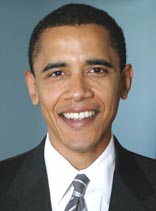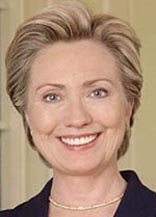 |
|||||
| Politics | Business | Schools | Justice | Health | Et Cetera |
By Ben Meyerson
WASHINGTON - It's becoming clearer by the week that neither Sen. Barack Obama nor Sen. Hillary Clinton is going to run away with the Democratic nomination for president, which might leave the decision to the party's free-wheeling superdelegates. A day after Clinton ended Obama's primary win streak at 12 by winning the popular vote in Texas, Ohio and Rhode Island, a Gonzales poll shows Marylanders are split on how they think the party's designated decision-makers should pick the nominee. Though 48 percent of Maryland voters said superdelegates should use their own judgment to pick the nominee, 43 percent said they should simply follow the will of the people in the popular vote. The poll has a 3.5 percent margin of error. "Superdelegate" is the unofficial title for Democratic representatives who are free to endorse whomever they want for the presidential nomination at the party's convention. They're entirely separate from the delegate votes cast in state primaries and caucuses, which count toward "pledged" delegates. Not surprisingly, Maryland's superdelegate crop is just as divided about their role at the convention. "I think they should do what they were intended to do," said House Majority Leader Steny Hoyer, D-Mechanicsville. "Superdelegates should bring their expertise and judgment to this very critical decision on who's going to lead our country for the next four years." While Hoyer hasn't decided who he'll back, Rep. Al Wynn, D-Mitchellville, has, and he admits it might be influencing his position a bit. "I've endorsed Obama, so obviously I'm biased," he said. "I'm a big believer in the popular vote—I'm not a fan of organizations like the Electoral College." Obama won the popular vote in Maryland and is currently leading in pledged delegates nationwide, an indicator of the popular vote. CNN estimates Obama has 1,321 pledged delegates to Clinton's 1,186. With the news network's superdelegate predictions, the margin slims to 1,520 for Obama to 1,424 for Clinton. Rep. John Sarbanes, D-Towson, hasn't endorsed a candidate yet, but said the voice of the people is very important. "I give real deference to how the popular vote went," Sarbanes said. "It's highly relevant, and I think it's the most obvious expression" of the country's will. Although Westminster City Council member Gregory Pecoraro isn't a congressman or a senator, he has just as many votes as his fellow superdelegates—one. He's not sure how he'll use it yet, either, but said the popular vote was very important. "In many ways, it's going to be the principle consideration I take into account," Pecoraro said. "But, I think my role as an uncommitted delegate is to weigh that and many other factors by the time we get to the convention." If he sees one candidate as a better nominee by the time of the Democratic National Convention, which will be held Aug. 25-28, he reserves the right to vote against the popular trend, he said. Maryland's superdelegates include Gov. Martin O'Malley, each of the state's Democratic senators and representatives and 19 other representatives selected by the party. Fourteen state primaries remain in the season, with the next major test coming April 22 in Pennsylvania. Wyoming and Mississippi hold primaries later this month. |
|||||||||||
|
Copyright © 2008 University of Maryland Philip Merrill College of Journalism | |||||||||||
| Politics | Business | Schools | Justice | Health | Et Cetera | ||||||

